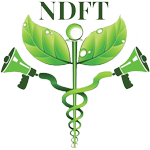
New study by researchers from Imperial College London
A new study by researchers from Imperial College London that also involved teams from London BioScience Innovation Centre, University of Newcastle and also Royal Brompton & Harefield NHS Trust has found that inhaled corticosteroids reduces the expression of ACE-2 receptors in the endothelial linings of the respiratory tract.
Abstract
Coronavirus disease 2019 (COVID-19) caused by SARS-CoV-2 is a new rapidly spreading infectious disease. Early reports of hospitalised COVID-19 cases have shown relatively low frequency of chronic lung diseases such as chronic obstructive pulmonary disease (COPD) but increased risk of adverse outcome. The mechanisms of altered susceptibility to viral acquisition and/or severe disease in at-risk groups are poorly understood. Inhaled corticosteroids (ICS) are widely used in the treatment of COPD but the extent to which these therapies protect or expose patients with a COPD to risk of increased COVID-19 severity is unknown. Here, using a combination of human and animal in vitro and in vivo disease models, we show that ICS administration attenuates pulmonary expression of the SARS-CoV-2 viral entry receptor angiotensin-converting enzyme (ACE)-2. This effect was mechanistically driven by suppression of type I interferon as exogenous interferon-β reversed ACE2 downregulation by ICS. Mice deficient in the type I interferon-α/β receptor (Ifnar1−/−) also had reduced expression of ACE2. Collectively, these data suggest that use of ICS therapies in COPD reduces expression of the SARS-CoV-2 entry receptor ACE2 and this effect may thus contribute to altered susceptibility to COVID-19 in patients with COPD.
Competing Interest Statement
S.L.J. has personally received consultancy fees from Myelo Therapeutics GmbH, Concert Pharmaceuticals, Bayer, and Sanofi Pasteura, and Aviragen; he and his institution received consultancy fees from Synairgen, Novarits, Boehringer Ingelheim, Chiesi, GlaxoSmithKline, and Centocor. S.L.J. is an inventor on patents on the use of inhaled interferons for treatment of exacerbations of airway diseases. M.A.C. was employed by Chiesi Pharmaceuticals from January 2015 to November 2017. A.S. has received honoraria for speaking from AstraZeneca. The remaining authors declare no competing interests…Read more

